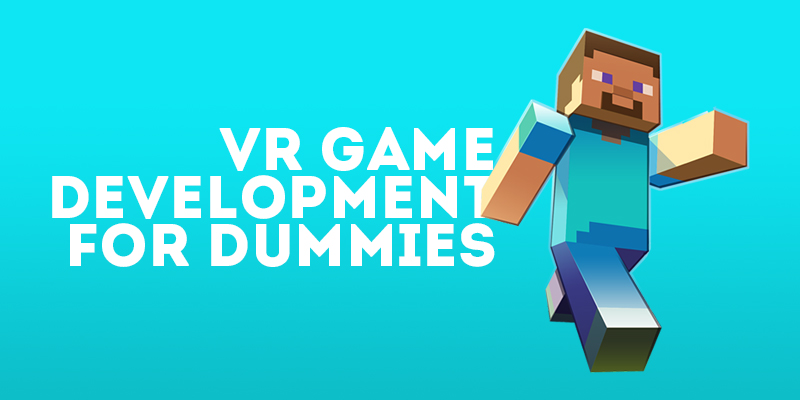Virtual and Augmented realities are the two hottest trends of the tech-industry in today’s date and time. Regarding creative technology, Virtual Reality takes the cake.
Industry power heads such as Sony, Samsung, HTC and Facebook, all heavily invested in consistently working towards producing VR content. Buying Oculus for a hefty $2 Billion back in 2014, Facebook upped the stakes in the industry by introducing the world to Virtual Reality headsets. Though a novel idea at the time, today, with the sets being readily available to the general public, industry interests in all things VR is increasing exponentially.
Today, we take the opportunity to discuss the essential 5 components of virtual reality systems.
The VR technology and devices are and have been the hot topics of discussion at almost all the key tech conferences. From GamesCom last year to the Mobile World Congress held in this February, to the very recent Game Developers Conference, VR technology, and its features, developing hardware tech as well as the software, all have taken the limelight. Rightly so, we believe.
However, being a frontrunner within the Virtual Reality spectrum is no easy feat. Be it hardware or software, VR is a field that requires a degree of experience and expertise to be able to break into; especially the development of a virtual reality application. Games or otherwise, there are five disciplines any developer or developing team need to master before they can expect any fiscal success on their creation.
VR Components: The 5 Disciplines
While the concept of virtual reality in gaming and movies has been around for quite some time, with 3D movies and console games, it was the introduction of Oculus Rift back in 2012 that is responsible for the current boom in all VR. Every corner you turn people are seen dabbling into the virtual reality sector, but to truly standout in a crowd, you or your team, as game or application developers need to adhere strictly to the 5 disciplines outlined below:
Component 1: Game Engine Expertise
Virtual reality headsets and immersive gear readily available in the market has created a niche for mobile specific games, now more so than ever before. As such, it’s only logical that all kinds of software developers are fighting for a chance to become the frontrunner in the VR video gaming race. Moreover companies behind some of the most massive game engines have, in order to facilitate the developer’s community, created platforms that are highly flexible but also all encompassing.
To top that off, most of these game engines are now available online for free, advocating the developer-friendly licensing. While this is considered a game-changer move for the industry for it encourages the newbies to try their hand in VR game development, it’s not quite the most successful move when pro-game developers are concerned.
State of the art game engines such as Unity or Unreal Engine 4, are gaming platforms that level down their complexity yet provide ease of accessibility to the highest grade development tools. These platforms allow any moderately talented developer to code a game good enough to be accepted within the market.
Making a virtual reality game is therefore a terrific opportunity to tap into this emerging marketplace. Are you ready to tap into the next big thing?
However, successful game development requires extensive knowledge, a deep-rooted passion for gaming and a thorough know-how of the backbone of a game. This discipline is perhaps the most important of all in terms of future monetary successes from game and application development.
An efficient developer is one who has a passion for gaming him/herself with a higher level of game development expertise that sets one apart from a crowd. It is individuals who understand the needs and expectations of a player from any given game, from the player’s perspective instead of a developers are the ones that eventually create a VR application that surpasses industry expectations. Being able to awkwardly maneuver around a game engine is not the secret to a successful game or application, no. It is, in fact, the thorough knowledge of the ins and outs of a VR game development combined with the ability to look at a game with the eyes of a player that makes for a successful developer.
Component 2: Artistic Inclination
A VR game creates an immersive virtual reality environment for the consumer to completely get lost in. By focusing on developing an atmosphere so engaging, entertaining and realistic, a developer aims to cut off the game player from actuality. Such a task is only possible if the game or environment is truly able to convey a feeling of human immersion and presence making the player believe that he/she is, in fact, a part of the game instead of merely playing it.
The individual responsible for creating such a believable virtual immersion is the Game Art Designer.
The artistic inclination and command on the creative side of the business is what makes or breaks the game. The job of a Game Art Designer is to envision and create the bigger picture by keeping in mind and eventually bringing to life what a gamer wants. An art designer not only conceptualizes the layout of a game, but also creates and manages gameplay and structure along with product documentation. An art designer will coherently translate his/her ideas in a way that allows them to be executed into visual beliefs, simple enough to be followed by others. Usually, it is common for successful Game Art Designer to have a solid educational background in virtual reality app development, game design or art though there is no shortage of incredibly creative art designers without formal scholastic learning. However, regardless of educational background, art designers share an extreme passion for gaming, an over-the-top flair for creativity, and a whole lot of experience to back it all up.
Component 3: Gyro and Accelerometer Sensors Management Skills
A success of a virtual reality environment relies heavily on the ability of gamer to experience an atmosphere as closely replicating the natural world as possible. That means, all the tiny movements, vibrations, and directions. Some devices are specifically designed to monitor, measure and control these motions and directions. These devices are minuscule but highly technical and sophisticated sensors. Though some these sensors exist, the two most important ones for VR game development are Gyroscopes and Accelerometers.
Accelerometer sensors are responsible for allowing a VR device to identify, simply put, which way is up. Not just that, though, along with the orientation an accelerometer sensor will also measure the magnitude of acceleration along a horizontal or vertical axis.
A gyroscope on the other hand, while similar in very many ways, allows the measure of device rotation orientation and lateral movements. They are also responsible for measuring the vibrations.
An electronic device such as the most basic smartphone requires multiple sensors for motion control. For virtual reality app development, the number goes even higher. To replicate the complexity and accuracy of movements in a virtual environment, a game or application need to have a highly sophisticated system of sensors working in tandem. This can only be achieved by someone who has extensive knowledge about these sensors, their importance, and usage. As such, Gyroscope and Accelerometer Sensor management skills are considered as the third most important discipline to master for successes in VR.
Component 4: Image and Graphic Processing Proficiency
The technological advancements in game imagery and execution of game graphics is what sets apart the consumer level Virtual Reality systems of two decades past with today’s highly specialized VR devices ready to take the industry by storm. For a truly immersive gaming experience, the graphics processing of any VR requires a working power that is seven or eight times the traditional graphical demands.
Image or graphic processing is primarily the processing of a high-end algorithm that allows an application to ‘see’ an object as the gamer does, recognize it, replicate it and reflect it within the game. For a VR game to produce visual output that does not induce headaches or nausea, the image received by a screen needs to be seamless, high resolution but with low latency.
To achieve top quality VR graphic processing, one needs a graphics programmer that works in collaboration with the art designers and code programmers for smooth imagery and game workflows. Graphics processing proficiency in VR app development is attained only when the Graphics programmer possesses an unmatched experience with graphic and imagery skills.
Component 5: Speech Recognition Adeptness
Voice and Speech Recognition and controls in a virtual reality environment take the whole gaming experience to a whole new level. Speech recognition became the next big thing for user input with the introduction of Apple’s Siri. Since then, it has been considered an integral part of creating an overall truly immersive environment. For hands-free gaming, and combining the natural behavioral traits of a gamer, speech recognition much like body movement and eye contact, is an essential component of VR.
The success for a VR environment rides on its ability to replicate realistically perceptions of all human senses and speech recognition is one of the major contributing factors of it. That said, it makes perfect sense for the last discipline of VR Success Secret for mobile app development, to be a developers adeptness with speech recognition software. An experienced developer who understands the human sound processing in a manner that allows for a complete recreation and recognition of it, is one who can help bring all the other VR game development components together for a truly immersive experience.
How AppReal-VR can help?
The benefits of a highly technically skilled game developing team remain unbeaten by the very many alternatives floating the market nowadays. There is no substitute for technical mastery, and those who recognize this are the ones making a name for themselves in the gaming circuit. If you are in the market for a top-notch VR game or mobile app, look no further than AppReal-VR, a company that specializes in all things virtual reality backed by the expertise of its highly proficient development team.


